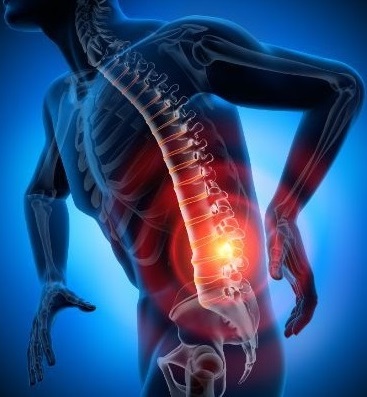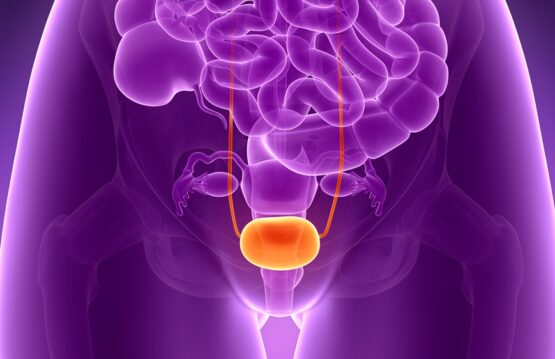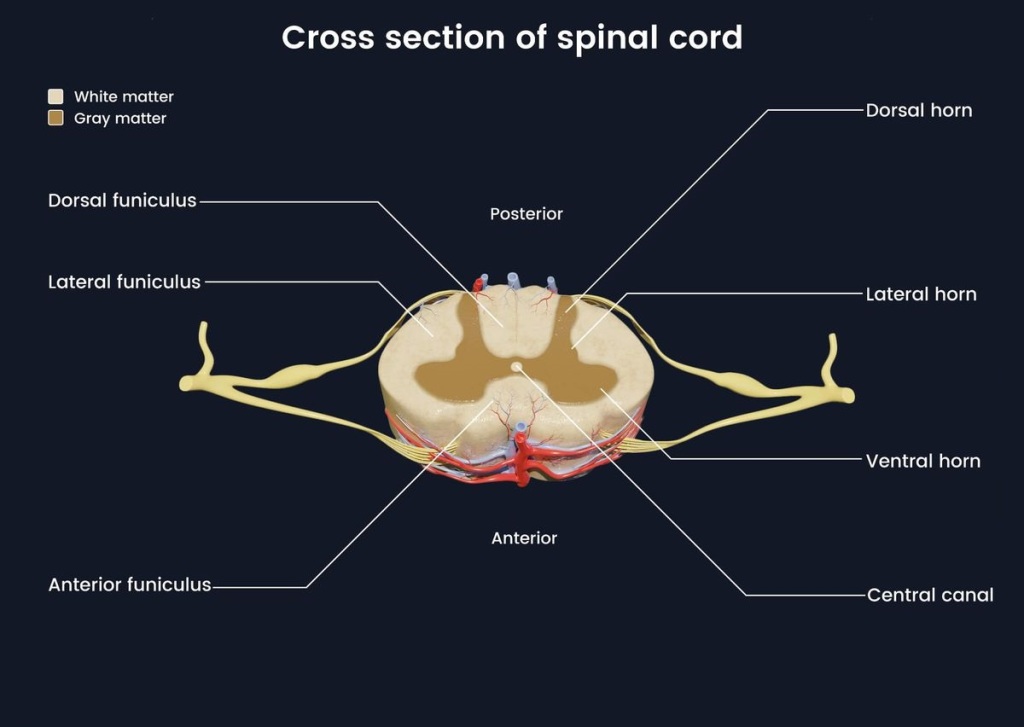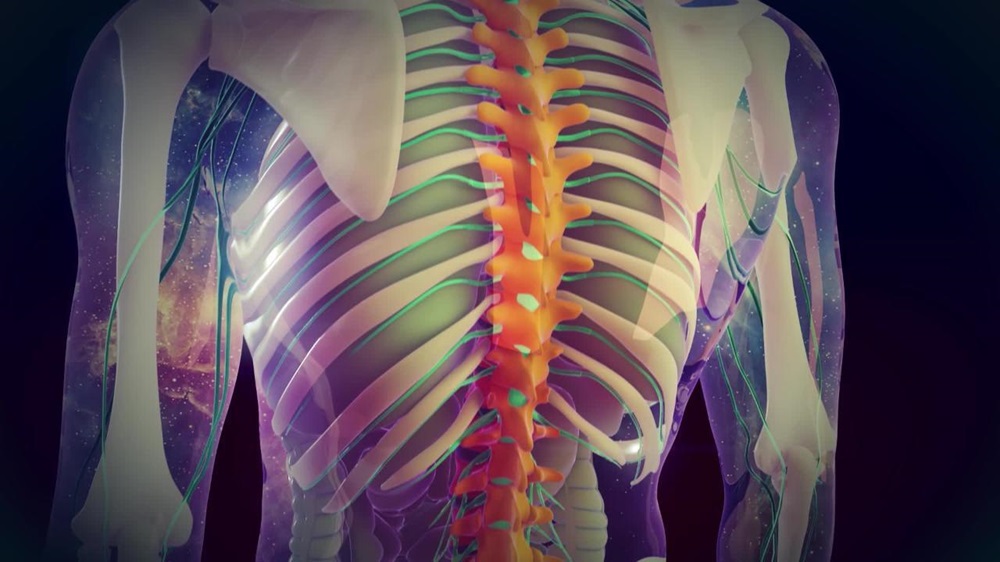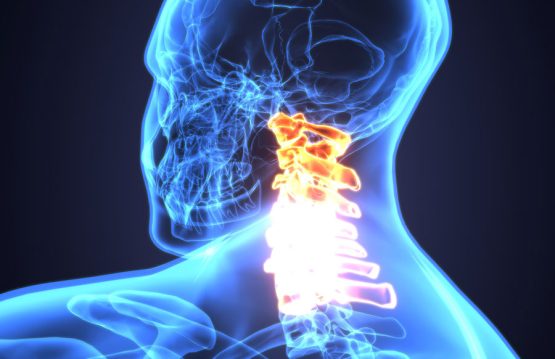Spinal cord injuries are a complex and often devastating medical problem, with the potential to radically change a person’s quality of life. The spinal cord is responsible for transmitting nerve impulses between the brain and the rest of the body, and any damage to this essential structure can have significant consequences.
A spinal cord injury can profoundly affect one of the fundamental aspects of daily life: bladder function. This vital function of the body, usually carried out involuntarily and under nervous control, often becomes a challenge for those with spinal cord injuries. Understanding how these lesions influence bladder health and identifying effective ways to manage them become essential in ensuring an optimal quality of life for these patients.
In this article, we’ll explore how spinal cord injuries can affect bladder health, as well as options for managing bladder problems.
CONTENT:
- Anatomy and Function of the Spinal Cord
- The Impact of Spinal Cord Lesions on the Urinary Bladder
- How can this problem be treated?
Anatomy and Function of the Spinal Cord
The spinal cord is a crucial structure that runs along the spine and is responsible for transmitting nerve impulses between the brain and the rest of the body. These impulses play a vital role in the control and coordination of movements and sensations. When an injury occurs in this area, it can significantly affect the body’s normal functions.
The Impact of Spinal Cord Lesions on the Urinary Bladder
The impact of spinal cord injuries on the urinary bladder is profound and can generate a number of complex problems related to the control and functioning of this vital organ. The spinal cord plays an essential role in transmitting the nerve signals that control bladder activity, and any injury to this area can disrupt the delicate coordination of the urination process.
1. Bladder Control
- Bladder Muscle Contractions: The spinal cord is involved in the transmission of nerve signals that coordinate bladder muscle contractions. These contractions are essential to squeeze and eliminate urine effectively.
- Function of the Sphincters: The sphincters, the muscles at the mouth of the bladder and urethra, are responsible for controlling the flow of urine. The spinal cord regulates the opening and closing of these sphincters in a coordinated manner to allow or stop the elimination of urine.
2. Fine Coordination Disorder
Spinal cord injuries can disrupt this delicate coordination between the spinal cord and the bladder, with the following consequences:
- Urinary Retention: Lesions can lead to difficulty emptying the bladder completely. Lack of proper coordination between the spinal cord and the bladder can cause the bladder muscles to not contract properly, causing urinary retention.
- Urinary Incontinence: On the other hand, injuries can affect the control of the sphincters, leading to urinary incontinence. Inability to keep the sphincters properly closed can lead to involuntary leakage of urine.
- Recurrent Urinary Tract Infections: Stagnation of urine in the bladder, caused by disruption of normal function, can create a favorable environment for bacterial growth, increasing the risk of recurrent urinary tract infections.
How can this problem be treated?
Treatment of bladder problems following spinal cord injury often involves a complex and personalized approach tailored to the individual patient’s needs. Depending on the severity of the injury, specific symptoms, and overall health, treatment options may vary. Here are some common ways to manage and treat bladder problems associated with spinal cord injuries:
Catheterization
- Intermittent Catheters: For those struggling to empty their bladder fully, intermittent catheters can aid urine elimination. Additionally, these are periodically inserted into the bladder to remove accumulated urine.
- Suprapubic Catheters: In some cases, doctors may recommend using suprapubic catheters inserted above the pubis to facilitate bladder emptying.
Medicines
- Medicines for Muscle Contraction: Doctors may prescribe medicines to support bladder muscle contractions, thus improving the ability to eliminate urine.
- Antibiotics: Due to the increased risk of urinary tract infections, antibiotics may be necessary to prevent or treat these infections.
Bladder Training
- Physical Therapy: A specialized physical therapist can implement a bladder training program. This may include pelvic muscle strengthening exercises and bladder management techniques.
Management of Incontinence
- Care Products: For those with urinary incontinence, there are a variety of care products. For example pads and absorbent panties, that can help maintain comfort and hygiene.
Consulting Specialists
- Urologist Consultation: Urologists specializing in bladder and urinary tract problems can provide detailed evaluations and specific recommendations for each patient.
- Counseling and Psychological Support: Bladder problems can have a significant impact on the emotional and psychological state of patients. Counseling or support groups aid in stress management and adapting to spinal cord injury changes.
Emphasizing the importance of tailoring the treatment to the individual needs of each patient. Moreover, a collaborative, multidisciplinary approach may offer optimal results in managing and treating spinal cord injury-related bladder problems.

